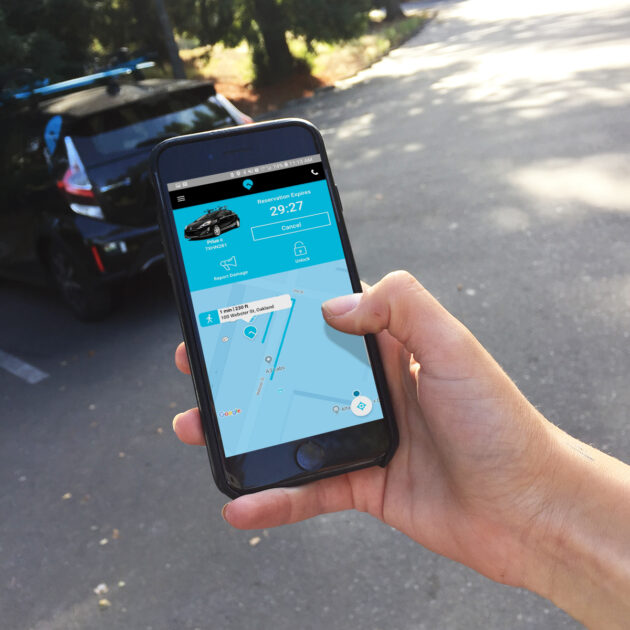
Seattle is getting a new free-floating car-share service this spring, filling a void left by popular mobility options that exited the city over the past few months.
AAA is expanding its GIG Car Share service beyond the San Francisco Bay Area to Seattle. GIG will begin rolling out cars in Seattle this April and its full fleet of 250 Toyota Priuses will be deployed in the city by May.
The model is similar to other free-floating car-sharing services that once roamed Seattle streets. At the height of the new mobility craze, Seattleites could choose from hundreds of rentable car2go, ReachNow, and LimePod vehicles. Like those services, GIG customers will be able to locate a vehicle and unlock it using a smartphone, drive it anywhere within the “home zone” in Seattle, and park it on city streets or designated parking lots.
“Car sharing is a critical component of making a city where people can have reliable transportation while reducing Single Occupancy Vehicle use and we are excited to have a new entrant into the market,” said Sam Zimbabwe, Seattle Department of Transportation director, in a statement.

It costs 40 cents per minute or $15 per hour to rent a GIG vehicle. Customers who join by March 15 will receive two free hours of driving credit by inputting the promotional code SEAGIG. AAA members receive 10 percent discounts on trips. There are no fees associated with unlocking the vehicles or membership.
AAA’s innovation lab A3Ventures launched Gig in the San Francisco Bay Area in 2017. The service currently operates 750 hybrid and electric GIG vehicles in Oakland, Berkeley, and Sacramento. AAA says that the Seattle expansion will make it the largest free-floating car-sharing service in the nation. GIG has 65,000 members and will operate more than 1,000 hybrid and electric cars after the Seattle launch.
Despite that early success, free-floating car-share is a largely untested industry with plenty of companies who were not able to make the business work. Car2Go pioneered the service in North America, launching in Seattle in 2012. A few years later, competing services including BMW ReachNow and Lime’s LimePod entered the Seattle market. By the end of 2019, all three announced they would exit Seattle.
But free-floating car-sharing has experienced more success outside the United States, including markets across Europe and Canada.
Earlier this month, Los Angeles-based Envoy announced its expansion to the Seattle region. The company allows neighbors in housing developments to share an electric vehicle.
